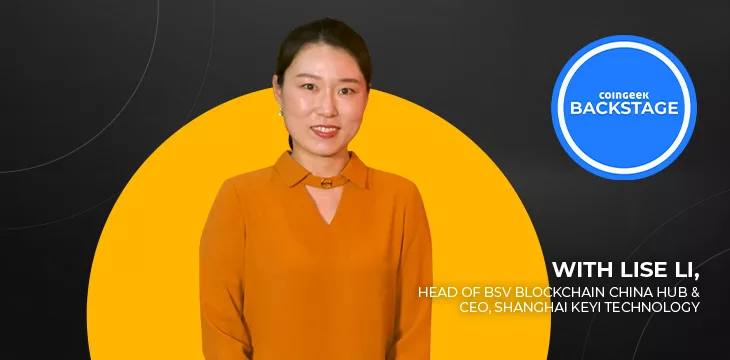|
Getting your Trinity Audio player ready...
|
Integrating blockchain into supply chain management and digital payments could yield immediate rewards for Nigerians and Africa at large, says Lise Li. In an interview on the sidelines of the Digital Nigeria International Conference, Li talked about how blockchain can enable the West African country to catch up with developed economies
At the event, Li was part of a panel that discussed how blockchain could impact multi-industry applications alongside Dr. Eva Porras, Bitlipa’s Apollo Eric, and others. On the panel, she singled out supply chain management and digital payments as the sectors that can benefit greatly with blockchain integration.
The world is becoming globalized at a rapid pace, necessitating the expansion of supply chains and developing a need for secure data sharing by the various stakeholders.
“By utilizing blockchain, you can easily break down the data silos of the entire industry,” Li told CoinGeek Backstage reporter Becky Liggero.
Li is based in Shanghai, and as she revealed, she has experienced China’s evolution into the world’s digital payments powerhouse. Today, mobile payment solutions like Alipay and WeChat Pay dominate payments, with cash being almost completely phased out.
It’s different in Nigeria and most African countries, which rely heavily on cash. Those who seek digital payments or banking services usually have to pay high fees, leaving millions out of the financial services realm.
Li, the head of the BSV Blockchain Association – China Hub in Shanghai, believes integrating blockchain is the solution. It can be by building an entirely new financial system powered by blockchain or incorporating it into the existing rails. It would lower the costs of accessing financial services and enable the marginalized to access essential banking services.
At Digital Nigeria, most of the questions from the audience focused on practical use cases of blockchain. As Li noted, it was a breath of fresh air from events in other parts of the world that are futuristic and paint blockchain as the ultimate solution to any global challenge.
One area that received high interest from the audience was agriculture, which employs one in three Nigerians. Li pointed out that in China, technology gives farmers a direct route to the consumers, enabling them to fetch better prices and cutting out the middleman. Integrating blockchain and other emerging technologies like big data could change the lives of Nigerian farmers who toil year-round, only to be exploited by intermediaries.
Watch: Supply chain traceability powered by blockchain tech

 02-17-2026
02-17-2026 




